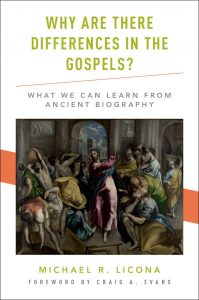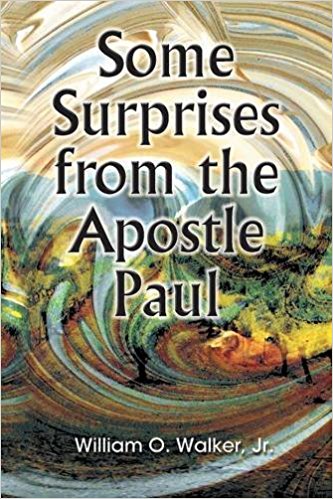 Continuing from the previous post on Stanley K. Stowers’ chapter, “Does Pauline Christianity Resemble a Hellenistic Philosophy?” . . .
Continuing from the previous post on Stanley K. Stowers’ chapter, “Does Pauline Christianity Resemble a Hellenistic Philosophy?” . . .
To pre-empt predictable objections Stowers begins with three riders:
- His comparison study does not make claims about origins; he is not arguing that Christianity began as a Hellenistic philosophy.
- Comparison or similarity does not mean sameness; he is not arguing that Pauline Christianity was a philosophy.
- Similarities with philosophical schools do not exclude similarities with other social groups.
With that ground cleared, following are seven similarities Stowers identifies.
1. Hellenistic philosophies saw themselves as distinctive sects, each focused on a central value/good
There were, for example, Stoics, Cynics and Epicureans. Each of these had its own attitude toward life and idea of what is the single umbrella good to which one must strive.
Stoics taught that virtue was “the answer” to the question of life. Everything else, all the other values and attachments deemed to be good were subordinate to “unitary good” of virtue. Family, possessions, would always take second place in the event of any conflict in following the ideal of virtue.
For Epicureans the ultimate good was freedom from pain and friendship. And so forth.
For Paul, the single, overriding good was “life in Christ”. Other values such as marriage, the household, business, ethnicity, were secondary. Even the commandments of God in the Jewish scriptures were superseded by Christ.
Yes, Paul’s stress upon worship of only one God and not many, and his “apocalyptic intensification” of these beliefs was Jewish, but Paul ripped them away from their ethnic, cultic and legal Judean contexts.
2. Hellenistic philosophies were contrary to conventional thinking
Ordinary civic virtue and conventional values were not the way to “happiness” or the “good life” according to Hellenistic philosophies.
The philosophies taught new ways of thinking, new motivations and desires to cultivate. Asceticism was valued.
In this context Stowers believes it no accident that the founders of the Hellenistic schools were not married and that Jesus and Paul were not married either. Paul challenged both Gentile and Judean norms of culture. The wisdom of God was set in opposition to both Greek and Jewish values.
Again, the structural similarities with the philosophies are obvious. (p. 91)
3. Hellenistic philosophies led to a new life, a new orientation of the self, a conversion
Stoics taught that the conversion was instantaneous.
For a more detailed discussion of the similarity between Paul’s idea of conversion to a life in Christ and the Stoic conversion see:
- Paul and the Stoics – 1 (2009-11-04)
- Christian conversion – an idea crafted by Paul from ancient philosophy (2009-11-08)
Other philosophies apparently ridiculed this Stoic idea of the way to attain virtue and taught, on the contrary, that virtue could only be attained gradually, over time, through a series of graduated steps.
Stowers adds that there is, moreover,
a literary tradition that becomes most prominent in the early empire in which writers give vivid descriptions of the turmoil and changes in the soul of those who convert to philosophy. Paul uses exactly the same language for conversion to the gospel. (p. 92)
4. Hellenistic philosophies required techniques to master and remake one’s self
Continue reading “Early Christianity Looked Like a Philosophical School”

 [Edit: When first published, this post credited Michael Bird instead of Michael Licona for this book. I can’t explain it, other than a total brain-fart, followed by the injudicious use of mass find-and-replace. My apologies to everyone. –Tim]
[Edit: When first published, this post credited Michael Bird instead of Michael Licona for this book. I can’t explain it, other than a total brain-fart, followed by the injudicious use of mass find-and-replace. My apologies to everyone. –Tim]






